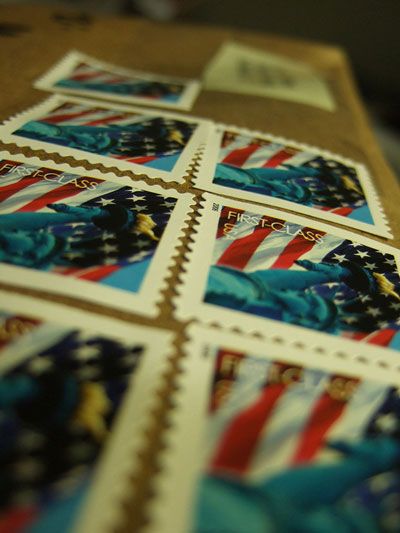
Patent Ownership is Not Based on The Date of Postmark
The Postmark Is Dead
No, this article is not about the Post Office. Rather, this article is about inventors needing to file a patent application to protect an idea.
The title refers to the notion that a person could prove inventorship and a date of invention by documenting the idea and sending the document through the Postal Service with the postmark as proof of the date of invention. The Patent Office hasn’t publicized whether a postmark proof ever worked, but between 2000 and 2010, only one person prevailed in a date of invention contest without having filed a patent application, and that was based on multiple testimony regarding a written notebook.
The U.S. used to be lenient on inventors. A person could publicly disclose an idea for up to one year and still get a patent for a novel and non-obvious idea with sufficient proof of the date of invention. (But as noted above that often failed.) The rest of the world, however, has for many years required a patent to go to the first person to file a patent application. That means U.S. inventors could be locked out from protecting a commercial idea in Canada, Mexico or anywhere outside the U.S.
In March of 2013, the America Inventors Act (AIA) made the U.S. a first to file country. Though there were lamentations that first to file will kill the individual inventor, AIA has increased the number of filed patent applications and helped U.S. inventors join the global market for monetizing patents.
Another change assisting the individual inventor is the micro-entity pricing schedule, which reduces many fees to 75% of the large entity fee. In other words, the Patent Office filing fee for a micro-entity provisional patent application is just $65 while non-provisional patent application filing fees are under $1000.
AIA also simplified how businesses document ownership in a patent application. Business can now claim ownership at filing of an application and later file documents substantiating ownership. Previously, a business had to wait to file proof of ownership, with the result of lawsuits over ownership.
Two other significant parts of AIA relate to a one-year rule. Under the previous rules, a company could not disclose or offer or sell the invention before filing a patent application. Small and unfunded companies were often at a disadvantage by having to forgo patent protection to raise funds, and if the company did keep the invention a secret, such a company could be forced to pay license fees to a company that invented later but filed first. The new law allows a confidential sale before the timely filing of the patent application. The new law also grants a patent to company who can prove timely invention IF the date of invention is more than one year before the other person or company filed a patent application AND neither person nor company knew about the other person or company’s inventive efforts.
There are, of course, other changes, that are outside the scope of this article. Please contact competent patent counsel for more information.
Gerald R. Prettyman, J.D., LL.M. (Intellectual Property) is a U.S. Registered Patent Attorney and Patent Counsel to JG, P.C. His patent practice is worldwide. He also handles trademarks, copyrights, and IP licensing.
